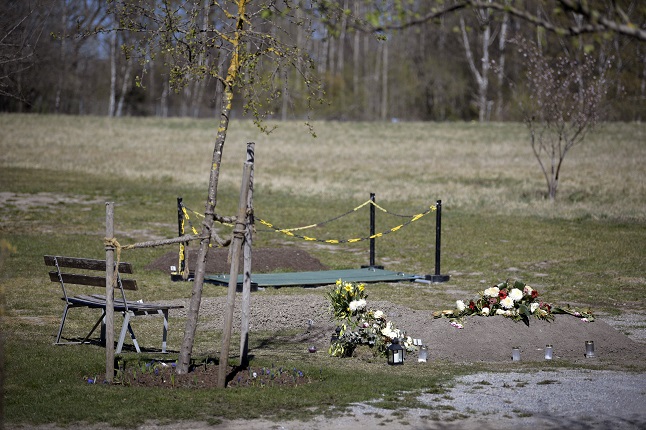In total, 8,088 deaths were registered, which is 10 percent more than the five-year average of 7,383.
COVID-19
Sweden records deadliest November in a century
Sweden registered more deaths last month than in any other November in more than 100 years, Sweden's national statistics agency has reported.
Published: 14 December 2020 15:50 CET

A grave in Ulriksdal, Stockholm. Photo: Janerik Henriksson/TT
According to Statistics Sweden, the country returned to excess mortality in November, meaning that more deaths from all causes were recorded than the historical average for the month over the past five years.
In total, 8,088 deaths were registered, which is 10 percent more than the five-year average of 7,383.
“This is the highest number of deaths recorded in November since 1918, which is the year the Spanish flu broke out,” Tomas Johansson, a demographer at SCB, said.
The highest death toll came on November 15th, when 292 people died. But more deaths were recorded every single day between November 12th and November 27th than on any November day since 2015.
Excess mortality in the second wave has so far nonetheless remained below that seen in the spring between March 29th and May 1st, when at least 300 people died each day.
“Since the middle of the year, the number of deaths has lain at a normal level for the period, but in November the number of deaths started to rise significantly,” Johansson said.
Between July and September, mortality in Sweden was in fact slightly below average, 12 percent below average for women, and two percent below average for men.
The November figures seems less alarming when adjusted for the growing size of the Swedish population.
On a per capita basis, November was only the deadliest in a decade, with 77.9 people dying per 100,000 inhabitants, compared to 79.2 in November, 2010.
Johansson said that last month's excess mortality had been confined to the over-65s, with lower-than-average mortality recorded for people of 64 and under.
Excess mortality was recorded this November in every region in Sweden except Norrbotten, Västernorrland and Värmland
Only two regions, Skåne and Kronoberg, registered higher excess mortality in November than during the spring months.
Url copied to clipboard!


 Please whitelist us to continue reading.
Please whitelist us to continue reading.
Member comments